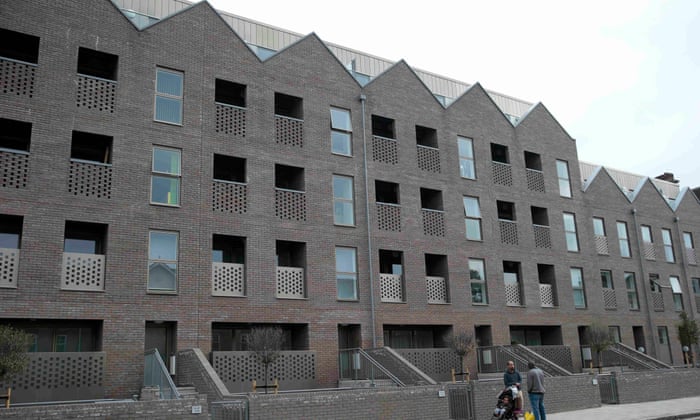Group had put acquisition programme on hold following EU referendum but says customer demand is still strong

The UK housebuilder Bellway has started buying land again because business has been strong in the months following the Brexit vote.
Bellway had suspended its acquisition programme to protect itself from potential market volatility arising from the referendum result in June.
Reservations, which involve homebuyers paying a fee to reserve a property, rose 7% in the four months to early December, to 176 a week. Bellway said it expected to build 5% more homes in the current financial year which ends on 31 July 2017.
“Whilst remaining mindful of the longer term uncertainty as a result of the vote to leave the EU, the positive autumn trading performance has given the board reassurance to cautiously recommence the group’s programme of land acquisition, following a brief planned hiatus in the weeks after the referendum,” the Newcastle-based company said.
In a trading update for the 18 weeks to 4 December, Bellway said it had entered into contracts to buy 40 new sites and had spent £263m on land.
Ted Ayres, the chief executive, said the outlook for UK housing demand was strong, boosted by low mortgage rates and the government’s help to buy equity loan scheme, which will be closed by the end of the year. The scheme was used in in 37% of Bellway’s reservations during the four-month period, up from 29% a year earlier.
Ayres said: “The group has made an encouraging start to the financial year and customer demand for new homes continues to be robust. The strength of the underlying housing market supports further growth.”
Bellway said selling prices were in line with expectations: “The pricing environment is firm across the country in those areas where the group has a presence, with sales prices achieved on reservations in line with expectations. In London, where Bellway’s focus continues to be on affordably priced new homes, prices have remained stable and demand robust.”
The update from Bellway is the latest sign that British consumers have so far shrugged off uncertainty arising from the Brexit vote. Consumer spending continued to be a key driver of economic growth in the third quarter of 2016.
[Source:- theguardian]

